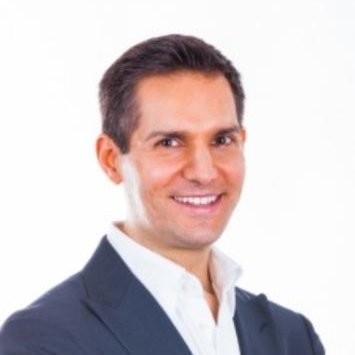Q1 What is the most valuable career advice you can give to people just starting out?
You’ve heard them before, but they bear repeating: never say die, don’t be distracted and always seek for alternative solutions to the seemingly impossible. But above all, get experience: the proof of the pudding is still in the eating. After dropping out of college, I got ridiculed for my visions until I actually became the youngest person in Europe ever to have obtained a banking license, at the age of 29.
Q2 What is the biggest challenge facing leaders today?
In a globalized world that’s becoming both more connected and complex, an increasing number of thought leaders and their visions have made it into the headlines. The biggest challenge for a leader, therefore, is to constantly “reinvent the wheel” and make all the difference at a rapid pace. But why see it as a challenge rather than as a source of motivation?! Leaders want to drive change and take control of uncertainties. Nobody has every become a leader by staying content with the status quo. The best way to predict the future is to shape it.
Q3 How do you ensure your organization and its activities are aligned with your “core values”?
The most important resource of a company is without a doubt its people. Both the company and its employees need to go hand in hand when talking about “core values.” If you hire someone who espouses values that contrast with those of your organization, you will fail to establish them internally and to promote them externally. For the sake of ensuring our success and creating a positive and fertile work atmosphere, we make sure that we get people who adhere to our “core values.”
Q4 Where do the great ideas come from in your organization? Do you encourage junior members to be creative and share business ideas with senior management?
Great ideas often emerge from the first verse – a template or initial idea, if you like, that helps to structure thinking in a way that makes you more creative. One of our core values is INCLUSION. With regard to your question, we’ve internally developed an inclusive work philosophy, the purpose of which is to provide a creative hub for ideas coming from employees, irrespective of their position within our company. Every employee has a distinctive feature, and the idea is to drive innovation through the power of diversity. Beyond that, we’re always happy to get feedback from our users.
Q5 Can you name a person who has had a tremendous impact on you as a leader? Maybe some one who has been a mentor to you? Why and how did this person impact your life?
If there’s anyone who’s had the greatest impact on my personal development, I’d have to say it’s in fact two people: both my mother and my father. I got their backing at all stages of my life, irrespective of the current success or failure of my mission. Seeing it from a virtual perspective, there is of course the creator of legendary Commodore 64, Jack Tramiel. He’s been my role model and a source of inspiration ever since I got my first C 64 at the age of 11. And don’t forget Ghandi! His incredible willpower and determination together with his faith into the good and the right has always had a great impact on my life.
Q6 Tell me about a time you struggled with work-life balance. How did you solve the problem?
Work-life balance? That’s an utter stranger to me (laughs), and by the way an awkward term. Does it mean you don’t live while working? Integrating both is what I’m trying to do. Beyond that, however, I can tell you that I’m a responsible individual in regard to my relatives and family, my colleagues, the people I partner with and, last but not least, in regard to myself.
Q7 Have you made unpopular decisions, such as firing employees or reducing compensation levels? What do you do to keep employe motivation alive after such actions?
There’s probably no realm on earth where there are no unpopular decisions that need to be made. They are, unfortunately, an unpleasant part of the daily business where people need to take responsibility and react to an ever-changing environment. Luckily, our company hasn’t yet been affected by such developments, and avoiding them is in fact another source of motivation.
However, if there are decisions to be reached, we need to look on employees as current and future contributors to the value of our organization. Accordingly, we treat them as individuals and not as a source of human capital. Keeping the people and their underpinning spirit together is imperative for the coherence of our team.
Q8 As leaders, do you create work environments that are more competitive or collaborative in nature?
A family that creates an environment of competition among its members is likely to see cracks in its foundation in the future. Only a collaborative family is strong enough to overcome so-called dog days. As it’s the case for a family, so is it also the case for The Naga Group AG. Competition is only directed externally.
Q9 How do you get buy-in from senior management and board on your business ideas?
To put it simply: the art of arguing and convincing others of one’s ideas and their implementation is still the right way to go.
Q10 How to increase employee productivity? Do you invest in their well-being?
We’ve undertaken many steps for increasing our employee’s productivity and investing in their well-being, ranging from various benefit packages and extra training to BBQ’s and organizing scavenger hunts. However, the most valuable currency is, simply put, trust in and among our employees, as well as recognition for their achievements. Nobody likes monitoring, but everybody likes appreciation. I’ve never seen an exception.


